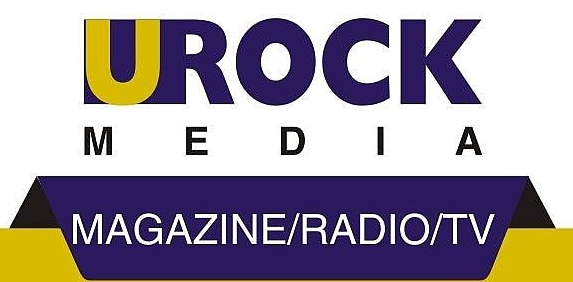UAE Ministry of Finance Cuts by 10% – 50% fees for Work Permit and Registration of Companies by Akhidenor Ernest.
The Ministry of Finance, MoF, revealed on Thursday that over 1,500 federal government services fees will be reduced or cancelled.
This latest move follows the Cabinet decision issued on the reduction and cancellation of fees for the services of some federal entities, which took effect on July 1, 2019.
Certain fees have been reduced by up to 50 percent to enhance the appeal of the national economy and reduce the cost of doing business and bolster the competitiveness of the UAE. According to the decision, the changes will be applicable to more than 1,500 federal services for three main federal ministries – Ministry of Interior, Ministry of Economy, and the Ministry Human Resources and Emiratisation.
Moreover, 1,200 fees were reduced or cancelled at the Ministry of Interior, 80 fees at the Ministry of Economy, and 200fees at the Ministry of Human Resources and Emiratisation.
The decision follows a study of service fees in the UAE in comparison with those in neighbouring countries.
Commenting on the announcement, Younis Haji Al Khoori, Under-Secretary of the Ministry of Finance, said, “During the preparation of the Federal Fee Review Project, the Ministry of Finance ensured that a standard study of fees was conducted and contrasted with international best practice. It then analysed the findings of this study to make recommendations to launch a well-conceived initiative that supports the gradual transformation of the existing government revenue system based on services charged into a tax-based system.”
“Following the completion of the study and consequent analysis, the Ministry of Finance proposed immediate measures to reduce fees by setting a fixed ceiling on incoming revenue. This will enhance business competitiveness and encourage innovation in services, which in turn will support the government’s vision of developing the national economy on a robust and sustainable foundation,” he added.
investors
The fees cancelled include a range of business and industrial licencing services, which is a boost for and SMEs.
The reduced service fees at the Ministry of Economy, meanwhile, include a range of services including renewing the registration of foreign subsidiaries, registration and renewal of foreign trademark registration, sale or acquisition services for foreign companies and dispute services.
The list of fees for reduced and cancelled services in the Ministry of Human Resources and Emiratisation encompass more than 200 services, including the issuance and renewal of work permits, this means work permit fees across all categories have been halved while fees for two-year work permit renewals have also been reduced.
According to the MoHRE, it will continue to exempt companies from paying the work permit fee to employ an Emirati or GCC national and exempt fishing boat facilities from work permit fees. The MoHRE said that the reduced fees are part of the government’s policy to boost investments and support entrepreneurship.
“The reduction in (service and transaction) fees will enhance the flexibility of the labour market and meet the needs of private sector businesses and at the same time enable enterprises to have additional options to meet their operational needs,” MoHRE Minister Nasser bin Thani Al Hameli said.
“The government is keen on enhancing the productivity of the country’s labour market by encouraging private business owners and investors to employ a skilled and competent workforce which is in line with the objectives of National Agenda 2021.”
The ministry also reduced the fee for swapping the permit of a skilled worker from one establishment to another owned by the same owner or partner by 50 per cent.These decisions are expected to further enhance the business environment in the UAE, empower entrepreneurs and encourage them to create new investment opportunities in the UAE. The move will also contribute to the creation of more jobs in the country and strengthen its competitive standing as a global business hub.
The Ministry of Finance will continue to review all fees for federal services and conduct the necessary studies to establish a framework of fee determination, as well as formulate policies to determine fees and to evaluate their impact on the market and business as a whole.
Small-sized businesses in Abu Dhabi’s energy sector will now be able to acquire instant licensing in through Abu Dhabi Government Services System (Tamm). The licenses will be issued within one working day and comes free of charge for a two-year validity.
“This facility aligns with Abu Dhabi’s strategic direction by increasing the ease of obtaining licences and by creating an environment conducive to conducting business,” said Hamad Al Ameri, Head of Licensing and Compliance Section at Abu Dhabi’s Department of Energy. “The DoE is keen to maximise the benefits from the sophisticated digital infrastructure of Tamm to provide our sector with the highest quality services.”
Business owners can receive instant licenses through Tamm for services such as water production, treatment and desalination, electricity generation and electricity generation by solar cells (with a maximum capacity of 50 kWp at a single facility). These will also apply to wastewater collection and treatment, recycling and disposal.
Emirates Water and Electricity Company (EWEC), the sole procurer of water and electricity within Abu Dhabi, has issued a tender for the construction and development of a new 2,000 MW solar photovoltaic (PV) power project to be located at Al Dhafra, Abu Dhabi.
The new project forms part of a series of projects approved by the higher committee for the water and electricity sector in Abu Dhabi.
Once completed, the project site will cover an area of approximately 20 square kilometres almost doubling the capacity of the current largest operational single-site solar PV plant in the world, Noor Abu Dhabi.“The new solar project in Al Dhafra marks yet another milestone in EWEC’s commitment to the UAE Energy Strategy 2050, which aims to increase the contribution of clean energy as part the country’s overall energy mix. The strong interest expressed so far illustrates the attractive business model and reaffirms the strong case for investment in UAE’s renewable energy sector,” said Othman Al Ali, CEO of EWEC, in a statement on Wednesday.The new project is expected to achieve commercial operations during the first quarter of 2022, upon which it would take Abu Dhabi solar capacity to 3,200 MW. Successful bidders would hold a 40 per cent equity participation in the project, with the remaining stake held by local entities.
By the end of this year, 10 per cent of all citizens’ homes in Dubai will be energy self-sufficient with free solar power as the UAE works to implement its energy goals. The project, which began last month, will see the installation of photovoltaic solar panels as well as energy-saving lights and water-savers to rationalise the use of electricity and water in the homes of UAE nationals. The homes will then be connected to the Dubai Electricity and Water Authority grid. Solar power is among a mix of renewable energy sources being deployed across the UAE — and the wider region — as governments seeks to keep pace with rising demand for electricity, thanks to rising populations, industrialisation and urbanisation. As announced in the UAE Energy Strategy 2050, the nation wants to double the contribution of clean and nuclear energy in the total energy mix and reduce the carbon footprint of its power generation processes by 70 per cent. ”The UAE has aggregate peak demand of around 20 GW, with the largest portion of demand coming from the commercial sector, reflecting the growing services orientation of the economy.’
– Andy Barrett, Senior Advisor, Global Gas and Power, IHS Markit
Electricity demand has run to about 5 per cent of the average annual growth rate over the past few years in the UAE, according to Mordor Intelligence, but is set to slow over the coming years. “The UAE has aggregate peak demand of around 20 GW, with the largest portion of demand coming from the commercial sector, reflecting the growing services orientation of the economy,” says Andy Barrett, Senior Advisor — Global Gas and Power at global information provider IHS Markit.
“The high growth rates of the last decade (over 7 per cent average annual increase) have recently subsided.”
Consequently, the UAE will lead investment in the regional power sector with an expected outlay of $33 billion (Dh121.2 billion) by 2022, says Claudia Konieczna, Exhibition Director, Informa Industrial Group, organiser of Middle East Electricity trade show. The event starts today and runs until Thursday at the Dubai World Trade Centre.
“Investments in the power sector will continue to be a priority across the region and is expected to reach $109 billion over the next five years,” Konieczna tells GN Focus, citing the MENA Power Industry Outlook 2019. “By 2020 the Middle East will be the world’s second largest market for energy consumption, according to the 2017 World Energy Outlook. As a result, governments across the region have taken major steps towards pursuing clean energy strategies, with the goal to get on track for sustainable growth.”
Four of the GCC’s top ten renewable energy projects are solar developments in the UAE. These include Phases 3 and 4 of the Mohammad Bin Rashid Al Maktoum Solar Park, the Dh3.2-billion Sweihan photovoltaic plant in Abu Dhabi, and a 200megawatt project being developed at Falaj Al Mu’alla in Umm Al Quwain to serve the northern emirates.
By 2050, the UAE will have invested Dh600 billion to meet its growing energy demand and generated Dh700 billion in savings while ensuring sustainable economic growth, according to official projections. To meet these targets, the UAE will need to have invested $163.3 billion in clean energy and household efficiency policies, or about $4.6 billion annually, S&P Global Ratings reports.
Renewable energy has emerged as an attractive option for the UAE for several reasons. Sunlight is an abundant, renewable resource, with the country receiving an average of ten hours a day for 350 days a year. As a signatory to the 2015 Paris Climate Agreement, the nation has committed to reducing carbon dioxide emissions by 70 per cent, also by 2050.
Finally, significant cost reductions have brightened the case for renewables. As of March 2018, Dubai’s costs of producing solar energy were the lowest in the world. At the same time, technology has evolved to allow cost efficiencies in other areas.“From a technical perspective, one significant development in the solar energy space has been a fall in the cost associated with storage technology infrastructure over the past two years,” says Martin Haupts, CEO, Phanes Group, an international end-to-end solar provider headquartered in Dubai. “This has seen storage emerge as a source of competitive advantage among solar developers, just as demand for storage and hybrid technologies has increased as a component of photovoltaic solar projects. Storage will only increase in importance as advancements continue to be made, and we’ll surely see the life cycle and efficiency of batteries rise and rise.”
Nuclear power and waste are other resources that the UAE is looking at to diversify away from oil and gas sources. The four reactors of the $24.4 billion Barakah power plant, the first in the Arab world, are expected to meet 25 per cent of the nation’s combined electricity needs by producing 5,600 MW of power.
Meanwhile, five waste-to-energy projects are underway across the UAE, with the Sharjah Waste to Energy Facility leading the way. The 30 MW project, a joint venture between sustainability pioneer Bee’ah, and Masdar, will process more than 37.5 tonnes of municipal solid waste per hour to generate electricity sustainably and divert more than 300,000 tonnes of municipal waste away from landfills every year.
Given those investments, the nation looks likely to meet its clean energy targets.




